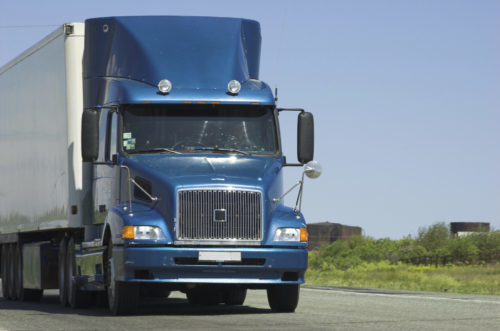
Each year in the U.S., more than 7.2 million car accidents occur. From 2015 to 2016, the number of accidents involving large trucks increased by 5 percent. Though there are more cars on the road and therefore more car accidents, trucks and other commercial vehicles caused more damage. Since the average truck weighs 20-30 times more than the average car, this isn’t all too surprising. However, their size isn’t the only way in which they differ. Here are 5 things you need to know about car and truck accidents.
1. Trucks Are More Heavily Insured
Cars are insured according to state requirements as well as the type of vehicle you drive and your driving record. Each of these factors is taken into consideration when establishing the cost of your premiums. This is not the case for trucks. Insurance for semi-trucks depends upon whether the owner is the owner-operator or whether they also lease with a carrier. Those who lease with a carrier carry an average annual insurance policy with costs from about $9,000-$12,000. Additional factors are considered:
- How much the truck is worth
- What the truck is hauling
- How far the individual drives
- The age of the individual driving
- The driver’s credit history
- The driver’s CDL history
2. Large and Commercial Vehicles Must Abide By Federal Laws & Guidelines
Cars and other passenger vehicles must adhere to state and local law, but semi-trucks and other large and commercial vehicles must also adhere to federal regulations. Since they travel the interstate they are regulating by federal law regarding things such as the amount that they are allowed to drive within a specific period of time and what they are allowed to haul. Additionally, trucking companies and drivers are required to register with the Department of Transportation (DOT) and the Federal Motor Carrier Safety Administration (FMCSA).
3. Different Evidence Needed
After an accident occurs, evidence is collected in order to preserve the specifics of the situation in order to determine the cause of the accident and subsequently assign liability. Attorneys will review police reports, photos, witness statements, security videos, and other pieces of evidence for a car accident. But when reviewing an accident involving a semi, different evidence is needed. This may include evidence that concerns the:
- Vehicle
- Cargo
- Truck Driver
It is very important to ensure that evidence is collected much quicker when the accident involves a truck, as the FMCSA only requires truckers to maintain records for six months.
4. Liability Issues Are Different
In a car accident, only the driver and insurance company is involved. However, when a truck is involved in an accident there can be many parties involved. The owner of the trucking company may also be liable. Truck drivers must have the correct licenses and certifications for what it is that they are doing. Under FMCSR guidelines, the truck (tractor) and the trailer are considered to be separate entities. Since drivers are not usually involved in loading or unloading cargo, liability may also involve brokers, freight forwarders, warehouse workers, and shippers. If the issue concerns maintenance, maintenance and repair shops may also be liable.
5. Compensation for Truck Accidents is Greater
Since semi trucks and commercial vehicles cause more damage than standard passenger cars, accidents involving them generally result in more serious injuries. Due to this, medical bills are also generally larger and so too is compensation.
The Personal Injury Attorneys at Katter Law Firm Help Those in NY Who Have Been Injured in a Car or Truck Accident
A car or truck accident can result in severe damage to your vehicle as well as serious personal injuries. It can have a great impact on your life and your bank account. At Katter Law Firm, we believe that everyone should be held liable for his or her own negligence; you should not have to bear the burden of someone else’s mistakes. To learn more or to schedule a free consultation, visit us online or call us at today!
